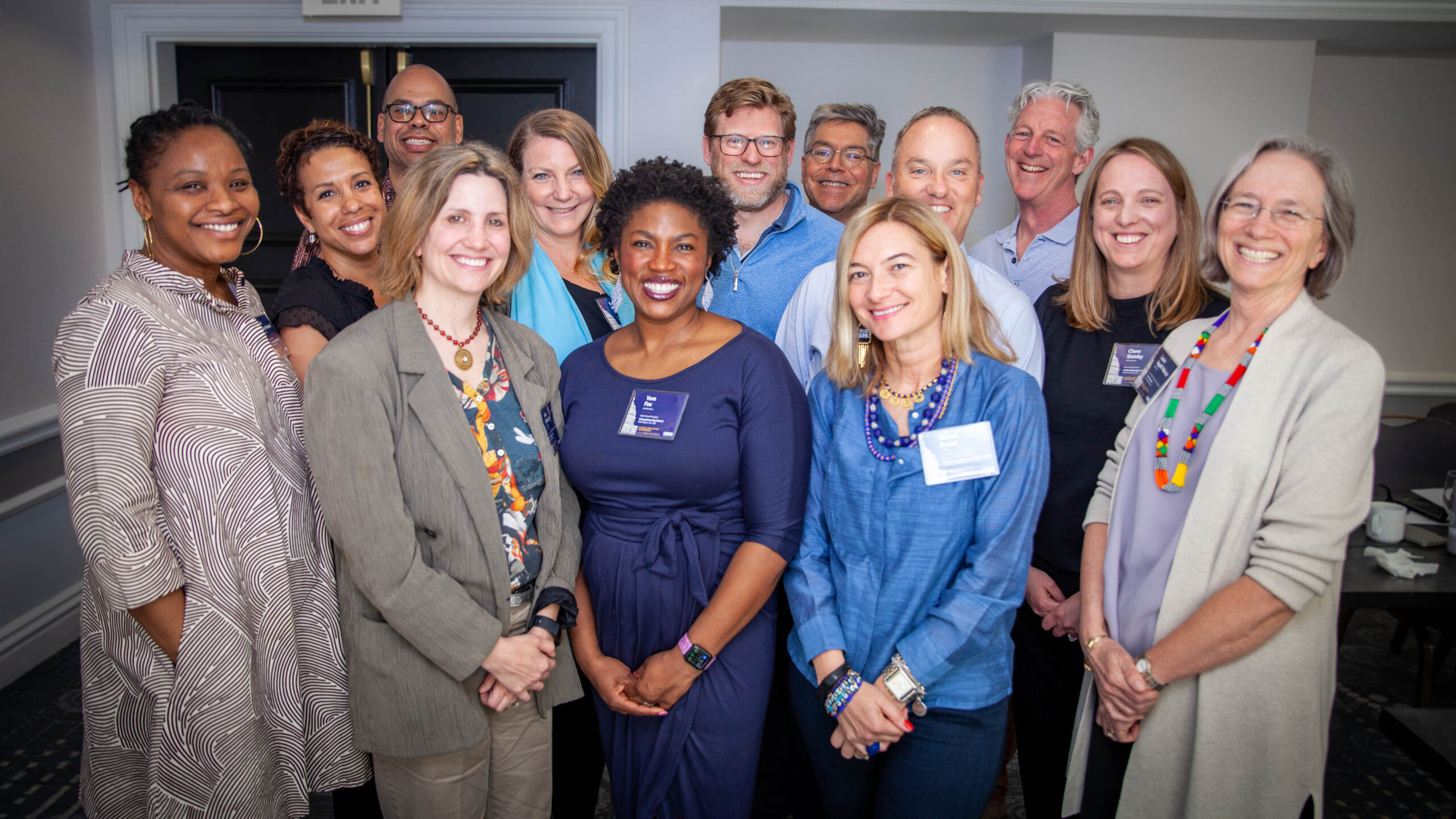Chief Academic Officer Tim Quinn, Porter’s Center for Global Leadership Director Sophie Paris, and Dean of Curriculum and Instruction Nelle Andrews wrote an article, Fostering Global Competency in Students: Shifting Curriculum and Supporting Teachers. The article was published in Interconnected: An Annual Report on Global Education – a publication of the Global Education Benchmark Group, where Ms. Paris is a board member.
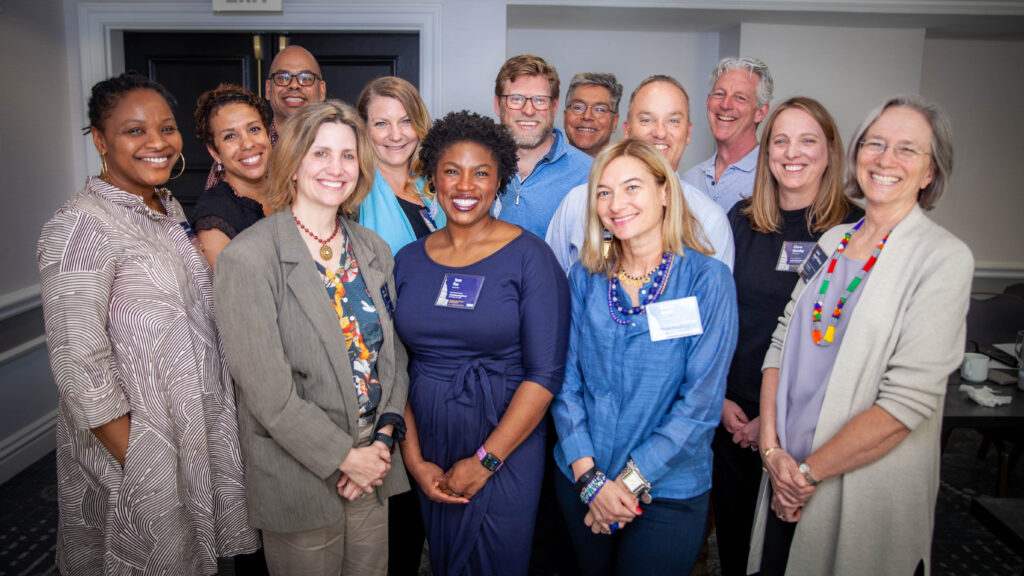
Miss Porter’s School has been an active member of the Global Benchmark Group (GEBG) since 2016, whose mission is to research and establish model practices in the field of global education while supporting member schools to bring global perspectives, global issues and global competencies into their learning and teaching. Sophie Paris was appointed to the GEBG Board of Directors for a three-year term which began in July 2022. She is a GEBG School Endorsement and Evaluation Committee member, which seeks to recognize schools with significant global ed programs. Through a multi-step process, GEBG evaluates schools that apply for the endorsement, including recommendations and commendations. Schools must meet all six of the GEBG Global Education Standards to receive the endorsement.
The Shift to Competency-based Mastery Learning
Miss Porter’s School is currently engaged in the challenging but important work of transitioning from a traditional academic program to a competency-based mastery learning program. A traditional academic program assigns grades to students based on their average work within single-disciplinary classes. A competency-based mastery learning program awards credit to students for demonstrating mastery of cross-disciplinary skills.
In a traditional academic program, successful completion of a specific class does not necessarily tell us anything about a student’s authentic skill level. Students who earn good grades typically work hard, turn work in on time, and maintain a high average on assignments. Nevertheless, that grade does not fully communicate the types of skills those students have developed, nor does it tell us much about their capacity for high-level application of content and skill in various and new contexts. In a competency-based mastery learning program, the focus is not on individual classes but on the students’ skill development across classes. Assessment requires the demonstration of competency in an authentic setting, and schools report on the student’s progress toward mastery of that competency.
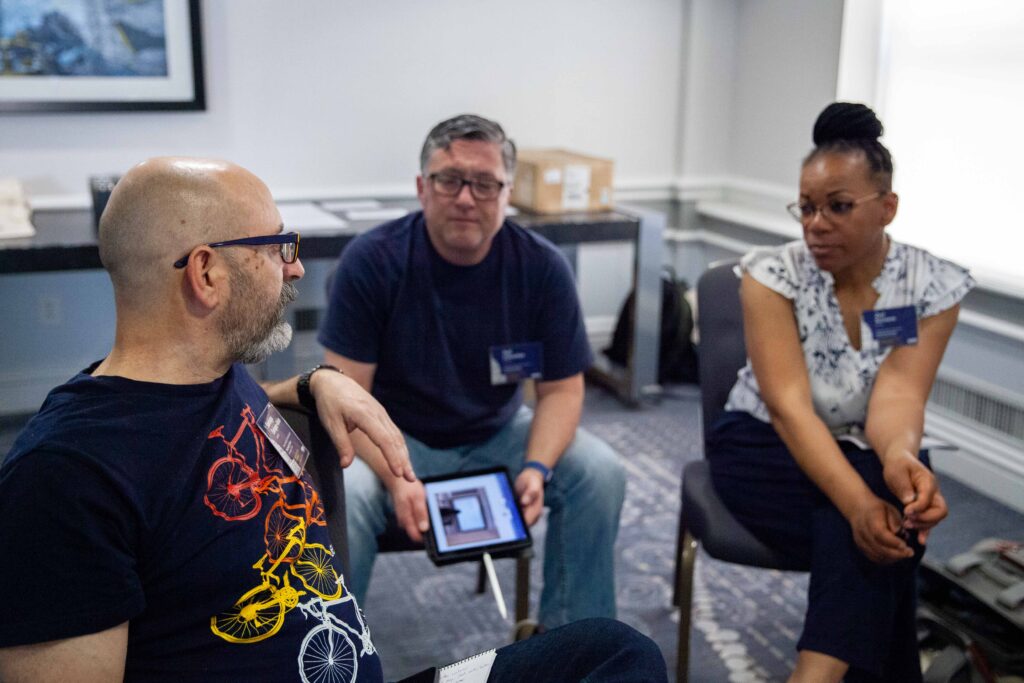
Global and Civic Engagement as a Core Competency at Miss Porter’s School
At Miss Porter’s School, we have identified five core competencies that connect to our mission and represent the skills we know students will need in the future. One of those competencies is Global and Civic Engagement. This competency aligns with our mission-driven imperative to develop students as ethical global citizens. We also know that our students need this competency to be successful in a globalized world. More importantly, our world needs leaders who genuinely possess this competency should we wish to solve the many pressing challenges we face.
Our description of a student who possesses this competency is as follows:
“The student recognizes their own and others’ perspectives, investigates the world beyond their immediate environment, interacts effectively with diverse audiences, and translates their ideas into appropriate action to improve the world.”
For students to earn mastery in this competency, they need opportunities to authentically demonstrate the aforementioned knowledge, skills, and behaviors, which requires a reimagining of the classroom experience and assessment practices. While we have only recently formalized this and our four other competencies, we have long been concerned with creating global citizens. Previously, this task was somewhat isolated and was overseen solely by our Institute for Global Education (IGE), the department that initially organized and implemented our student travel programs. We are working now to ensure that students develop this competency across courses, within all departments, and through multiple experiences outside the classroom.
MERGING ACADEMIC AND EXPERIENTIAL LEARNING IN SERVICE OF GLOBAL COMPETENCY
Our focus on global competence began in earnest in 2013, when we launched our first InterMission Term. InterMission was a three-week term in January between our fall and spring semesters. During that time, students enrolled in interdisciplinary courses focused on fostering connectedness, confidence, and challenge in our community. These experiential courses were designed to inspire students to be passionate and curious as they learned to become informed, resourceful, and ethical global citizens.
Within two years, we launched our International InterMission Program, which provided immersive international experiences for every 11th grader during the InterMission Term (for no additional fee). We partnered with schools worldwide to offer immersive school-based exchanges for their students at Porter’s and our students at their institutions. Eventually, the IGE developed a year-long global citizenship curriculum that buttressed the immersive travel experience during the InterMission Term. Still, we were concerned that the travel experience lived outside the academic programs. For students, there was school learning (i.e., English, math, science), and then there were experiences that happened on breaks from classes. Our goal became to merge the two and show that in order to develop skills and competencies, learning needed to be both academic and experiential.
To this end, in the fall of 2022, we launched a set of Interdisciplinary Global Intensive courses that would meet for 180 minutes each day over a ten-week trimester and include a robust travel experience. As part of the initiative, in the 2022-2023 school year, all our 11th-grade students will travel to Costa Rica, France, or Germany to participate in these global intensive courses. Each course provides the students with an understanding of the history and culture of the region to which they will travel, focusing on exploring a pressing global issue in that region. When students return from their travels, each course culminates in a final project addressing the problem they have studied. The final projects are then presented to the other faculty and students in the Miss Porter’s community as part of our school-wide Demonstrations of Learning days that close out each trimester.
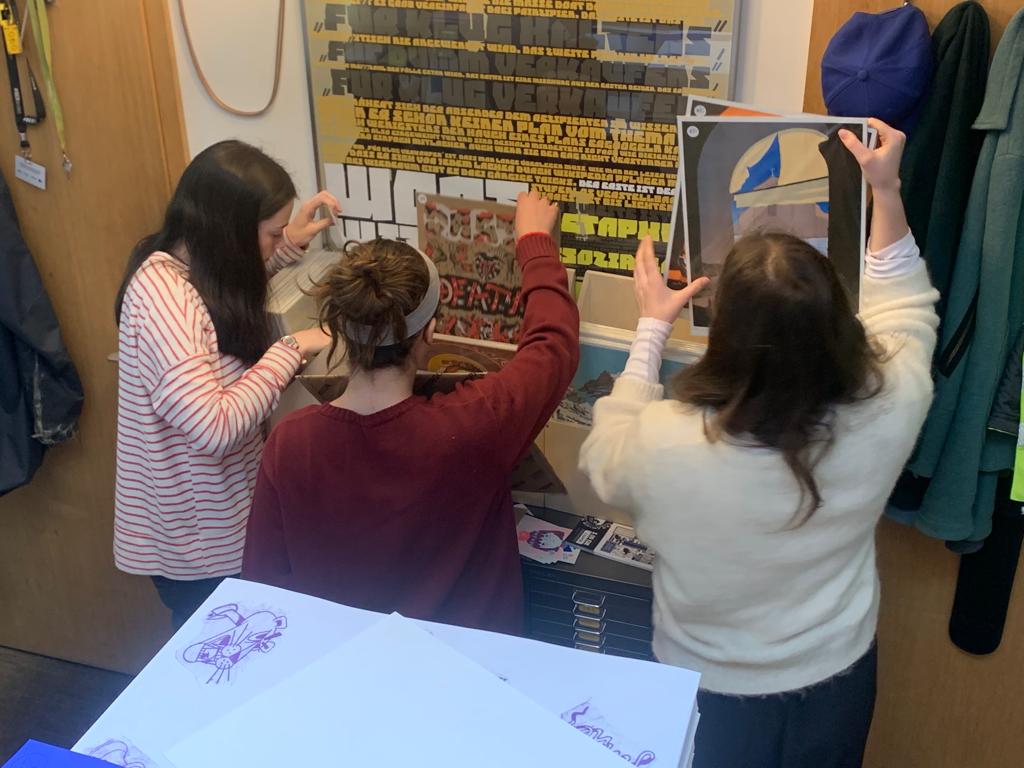
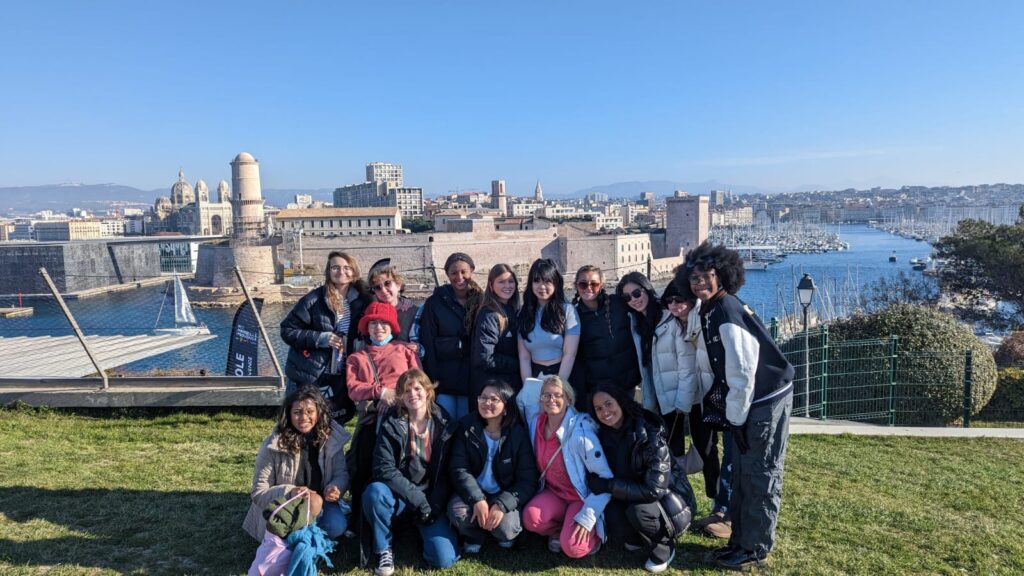
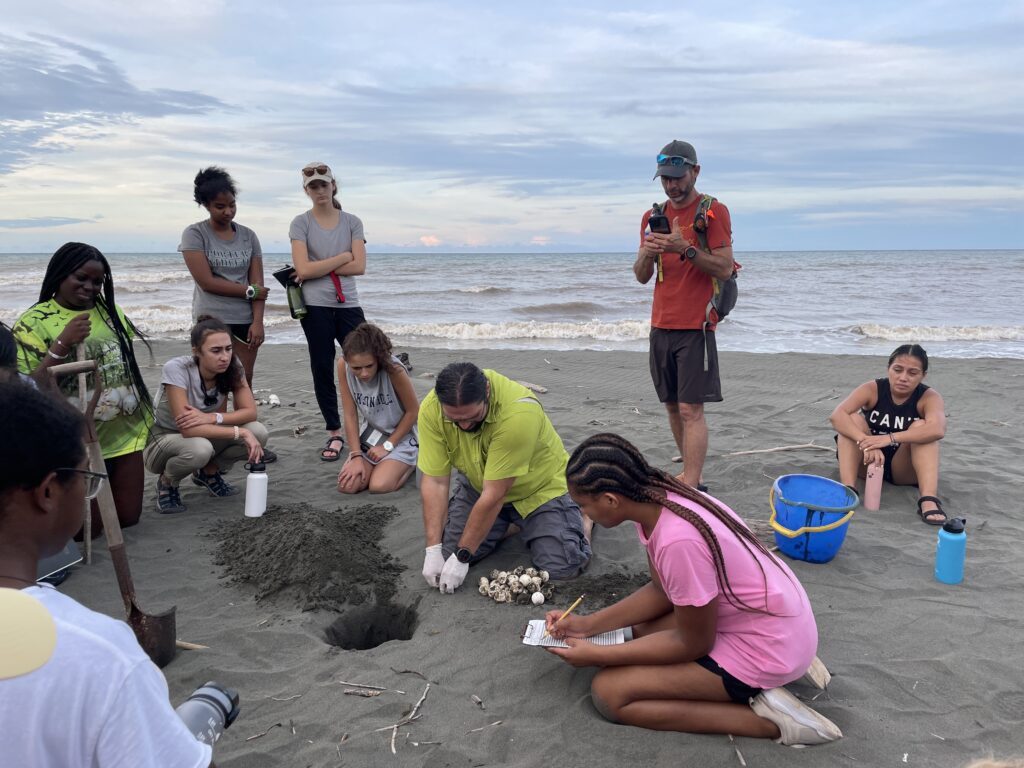
While faculty are tremendously excited about these amazing courses, the shift to teaching interdisciplinary courses, synthesizing academic and experiential education, and developing a competency-based curriculum has pushed them out of their comfort zones and challenged them to think differently about teaching and learning. Thus, supporting faculty in this shift has been critical.
TEACHER SUPPORT THROUGH COLLABORATION, TIME, AND TRAINING
One thing we quickly recognized when thinking about how to support faculty in this transition was the need to develop more explicit frameworks for curriculum design and assessment. The first step was clearly defining our core competencies, priority standards, and learning objectives. Teachers signed up for various working groups in the 2021-22 school year, and we spent a good portion of the year outlining the skills and habits we want our students to be able to demonstrate by the time they graduate from Miss Porter’s School. As mentioned above, with our mission as our guide, we worked together to outline five core competencies. Within each competency, there are 4-5 Priority Standards, and for each Standard, there are 4-7 Learning Objectives. The Global and Civic Engagement competency consists of the following:
Priority Standard 1: Civic Knowledge
Learning Objectives:
- I can investigate and explain the relationship between the practice and perspectives of the cultures studied.
- I can identify and place my work in a global and historical context.
- I can identify/recognize cultural products, practices, perspectives, behaviors, and expressions related to everyday life.
- I can compare and contrast the rights and responsibilities of citizens across cultures, nations, and regions.
- I can identify how implicit and explicit bias, prejudice, and discrimination create discrepancies in access for individuals.
Priority Standard 2: Responsible Citizenship
Learning Objectives:
- I can develop informed opinions regarding ethical issues.
- I can keep my environment clean for the health and safety of myself and my surrounding community.
- I can apply my knowledge of cultural products, practices, and perspectives in order to interact with others with respect and understanding.
- I can demonstrate empathy and respect for others.
Priority Standard 3: Intercultural Competence
Learning Objectives:
- I can demonstrate an awareness of and appreciation for experiences and/or perspectives that differ from my own.
- I can understand how my knowledge and skills shape my perspective/experience in the global community.
- I can recognize how my identity and bias affect and shape my experiences.
- I can promote cultural empathy and cross-ideological communication & understanding through my work.
- I can challenge and broaden my own perspective.
Priority Standard 4: Community Service
Learning Objectives:
- I am aware of my talents/skills/resources and put them to use in my community.
- I can identify a need for change or improvement in my community.
- I can participate in efforts to make my community a sustainable and livable place.
These standards and objectives were established collaboratively by the faculty, and what makes this
framework work is that it is school-wide rather than discipline-specific. We have designed and incorporated these global competencies into nearly all our courses across all four years of a student’s high school experience.
We have also designed training and development for our faculty, so they can better understand and provide the types of hands-on learning experiences that ask students to demonstrate these key competencies. To that end, we have been working in departmental and interdisciplinary course-based teams to formally document all of our courses this year so that we can assess where we are succeeding and identify areas for growth and revision. The assessment of these curricular plans includes individual meetings between faculty and Department Chairs to refine the curriculum, focusing on creating experiences that help build competencies and assessments that can measure this growth.
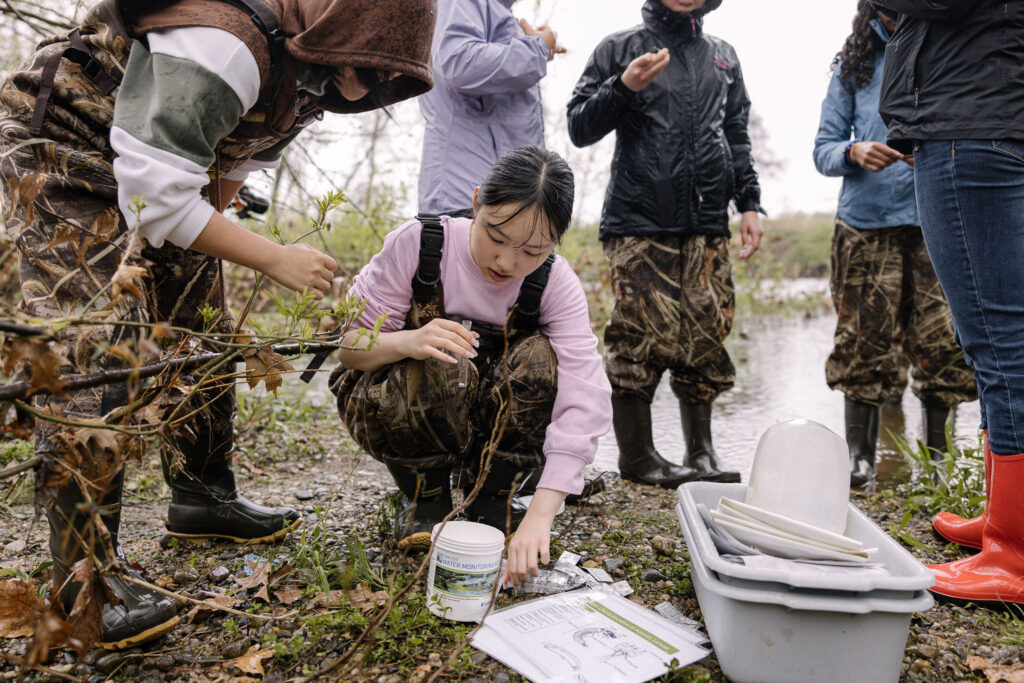
Aligning our goals with our practices is ongoing work for our faculty, and we have built professional time into our daily schedule to help facilitate these goals. Teachers have three to four 40-minute morning meeting slots available weekly to meet with colleagues to refine course details and assessments. Our Chief Academic Officer and our Dean of Curriculum & Instruction are available to meet with departments and course teams to support this work further. Two to three times per month, we come together for faculty-wide professional development designed to enhance the literacy of our faculty concerning curriculum design, competency-based assessment, and other vital aspects of the learning process, such as reflection, metacognition, high-quality feedback, and formative checks for understanding. We expect to work together this spring and summer to refine school-wide learning objectives and revise course content and assessments to better align with our competency-based mastery learning framework.
As we move forward, we have some critical questions guiding this work:
How can we be sure that our students effectively develop their skills in each of these competencies?
To what extent are teachers giving students opportunities to practice these skills in their classes?
What competency-based learning opportunities are available to students outside of a traditional classroom experience, and how do we document those learning moments effectively?
A Worthy Challenge
Aligning discipline-specific language to a broader school-wide model has challenged our faculty to think critically about their assessment and course design. There is no question that this is time-consuming and di cult work, but that is not a reason to avoid it. When we put the experiences of our students first, our role as educators becomes crystal clear. Our responsibility is to help our students build the skills they need to engage meaningfully in a global society.
Although there is always more work to do, our AIS Global Intensive Courses are the model for the type of project-based, place-based learning that enables cross-disciplinary study and mastery of our five competencies. The more our students recognize how these skills intersect, the more prepared they will be for their future. We are privileged to be able to offer these opportunities to our students. Most importantly, we are proud to design learning experiences that align with our mission, ensuring that our students will be informed, bold, resourceful, and ethical global citizens, ready and willing to contribute to the world.

